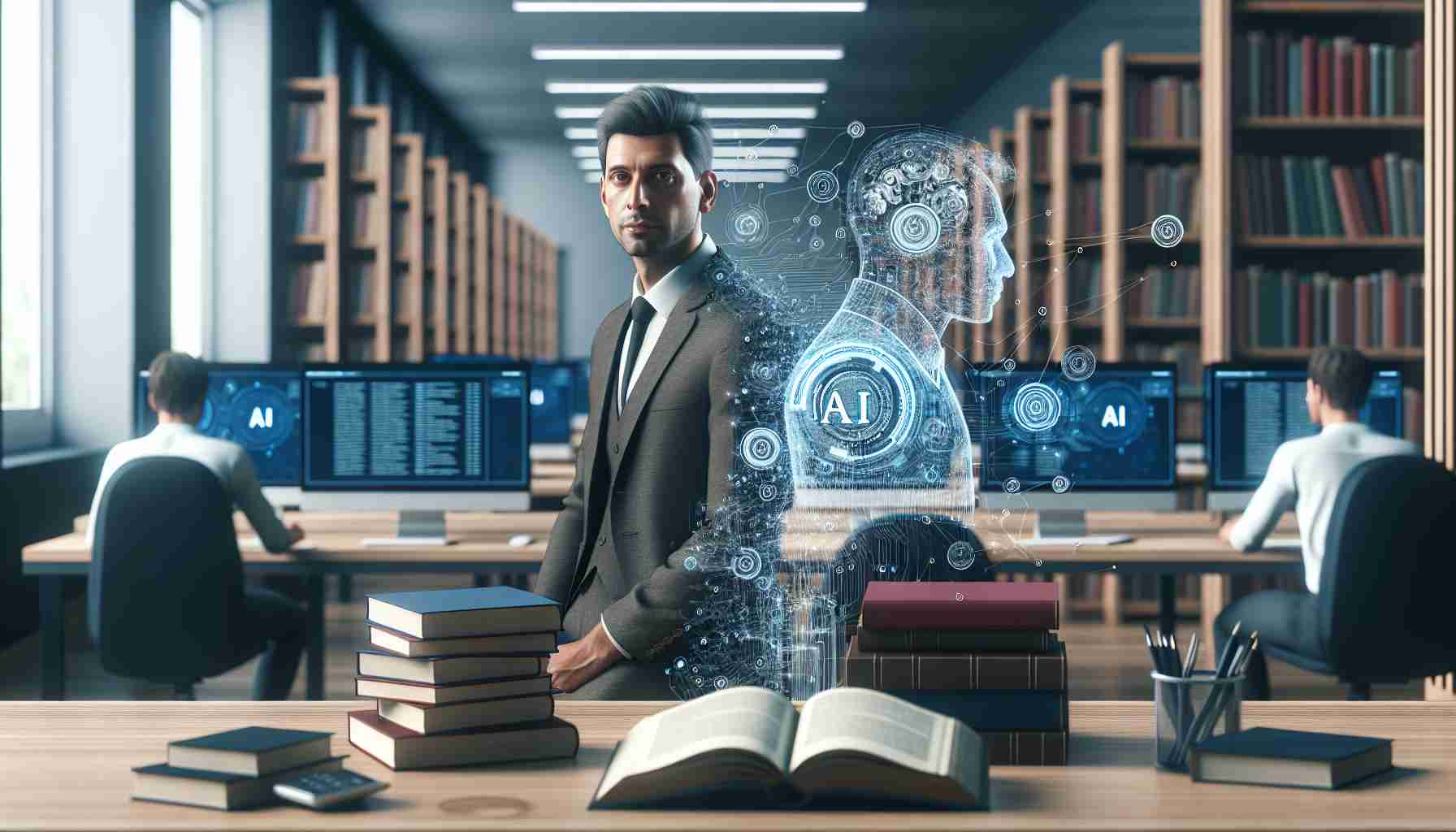An Innovative Leap for Future Libraries: Distinguished AI expert Professor Şahin Albayrak, recognized for his significant contributions to artificial intelligence through widely cited publications, has made a revolutionary stride in the evolution of libraries. Born in Nazımiye district of Tunceli, Albayrak, after excelling in his early education in Turkey, moved to Germany in 1979 to pursue further academic excellence. He completed both his undergraduate and doctoral studies with distinction at the Technical University of Berlin, subsequently achieving the rank of associate professor. His expertise was further honed at Stanford University’s AI lab in the United States, where he acquired the professorship title at the young age of 30.
From AI Labs to Transforming Libraries: Returning to the Technical University of Berlin, Professor Albayrak spearheaded an AI lab jointly operated with Deutsche Telekom and managed a substantial €2.5 billion AI research initiative for combating COVID-19 in Germany. Currently, he is invested in the development of AI systems across various sectors including health, transportation, workplace safety, and significantly, libraries.
Albayrak perceives his systematic and scalable AI solutions as a means to support societies in industry and comfort. His ongoing project, “The Center of World Knowledge: The Library of the Future in Europe,” focuses on revolutionizing the conventional physical access to libraries.
The Future AI-Driven Library: Albayrak envisions a future where books transition from shelves to digital hard drives, information is synthesized and provided by AI, and the librarian’s role evolves into data curation through AI literacy. Furthermore, copyright laws will adapt to AI, with the introduction of pay-per-page models and differentiated payment schemes for authors by AI systems.
As the timeline unfolds, within the next decade, Albayrak projects that global libraries will be equipped with AI technologies, fundamentally altering the accessibility to digitalized texts round-the-clock. He emphasizes that while the core task of a librarian will transform, the profession will not become obsolete; instead, it will require upskilling to integrate with AI systems. Albayrak reiterates that merely digitizing information does not equate to AI – the future AI will engage in nuanced conversation and aggregated analysis, significantly enhancing professional productivity across various fields.
Key Questions and Answers:
– Q: What is the main goal of Professor Şahin Albayrak’s work with AI in libraries?
A: The main goal is to revolutionize the way libraries function by integrating AI systems to manage and curate data, improve access to digitalized texts, and facilitate a transition from physical bookshelves to digital storage.
– Q: How will copyright laws adapt to accommodate AI in libraries?
A: Copyright laws are projected to evolve to allow new payment models, such as pay-per-page schemes and differentiated payment plans for authors managed by AI systems.
– Q: What will be the role of librarians in the future AI-driven libraries?
A: Librarians will become data curators who will need to develop AI literacy to integrate AI systems into their workflow, thus emphasizing the need for upskilling rather than making the profession obsolete.
Key Challenges and Controversies:
– Privacy and Security: Digitizing large volumes of information and using AI for managing libraries raises concerns about data privacy and security. Ensuring that users’ data is protected while providing access to information is a significant challenge.
– Unequal Access: A controversial aspect is ensuring equal access to AI-driven library resources for people across different socioeconomic backgrounds, particularly those who may lack the necessary technology or digital literacy.
– Cultural and Societal Impact: Questions around how AI integration might affect the cultural role of libraries as communal spaces and centers for human knowledge exchange.
Advantages and Disadvantages:
– Advantages:
– Enhanced access to library materials through 24/7 digitalization of texts.
– Improved search and information synthesis capabilities powered by AI.
– Potential cost savings from reduced physical storage and material handling.
– Up-to-date and tailored resources provided by intelligent systems.
– Disadvantages:
– Risk of technology obsolescence and the need for constant updates.
– Potential job displacement or shift requiring upskilling for library personnel.
– The digital divide might widen if certain populations are left behind in the digital transformation.
For additional information related to AI research and advancements, here are two reputable sources that could provide further insights as related links:
– Association for Computational Linguistics
– Association for the Advancement of Artificial Intelligence
*Please note that based on the information given, URLs for directly related content for Professor Şahin Albayrak’s work or the specific transformation of libraries by AI he’s involved with are not provided. The links above are general AI research organizations that may cover a wide range of AI topics, including developments in libraries.

